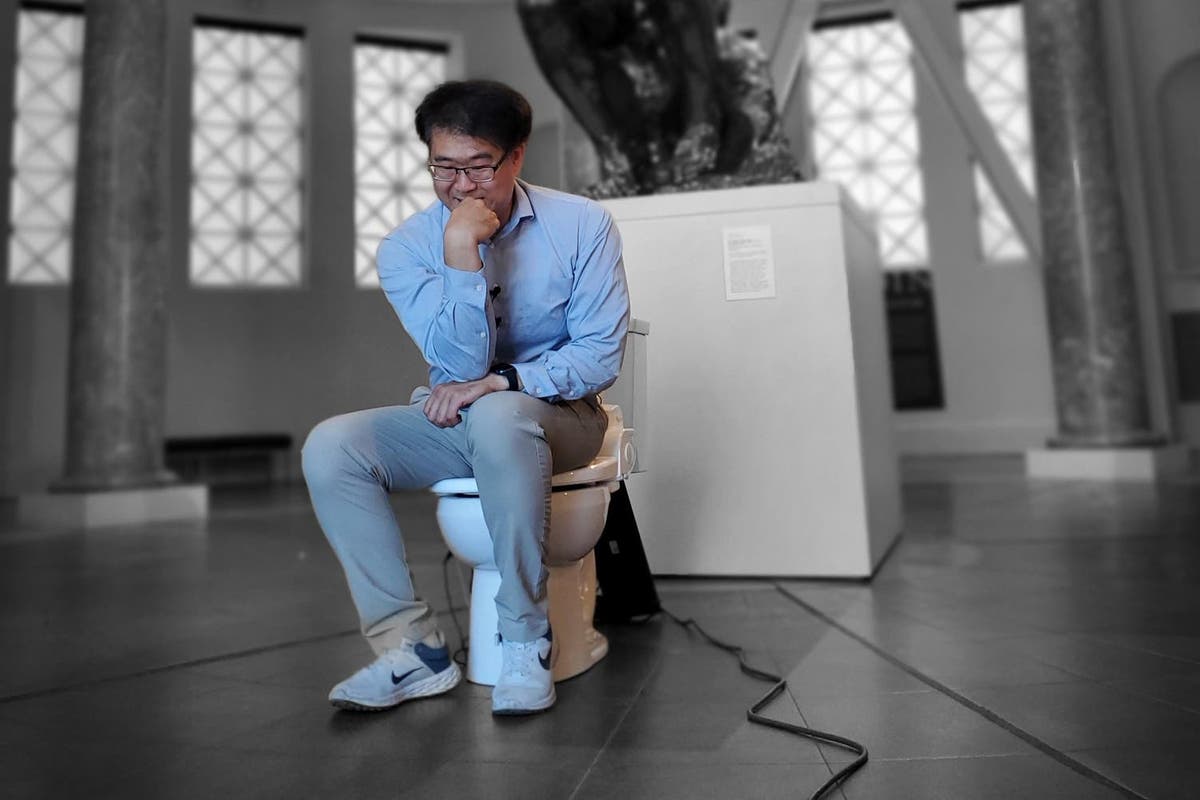Research on turning dead spiders into robot-claws called “necrobots” and a “smart” toilet innovation to identify a person from their “analprint” are among this year’s Ig Nobel prize recipients.
The Ig Nobel prizes are given every September to quirky scientific studies and achievements that “make people laugh, then think”. The prize ceremony is organised each year by the science humour magazine Annals of Improbable Research.
Some of the research conducted over the last year which received the 2023 Ig Nobel prize included one in which scientists re-animated dead spiders to use as mechanical gripping tools, and another explaining the peculiar behaviour of many geologists who lick the rocks they study.
In the public health category, this year, the prize went to researchers who invented a “smart” toilet that uses a variety of technologies to monitor and quickly analyse the substances a user excretes.
The strange innovation by Stanford University scientists includes devices such as urinalysis dipstick test strip, a computer vision system for defecation analysis, as well as an interface with other devices.
This invention, dubbed the “smart” toilet, also has a sensor paired with an identification camera which assesses creases in the lining of a person’s anus to produce an “analprint” similar to fingerprints.
“Our bathrooms, often seen as the most private of spaces, have the potential to become the silent guardians of our health,” Stanford’s Seung-min Park, who was part of the team that built the toilet, told the Associated Press.
Jan Zalasiewicz, a geologist at the University of Leicester, won this year’s award in the chemistry and geology category for his work explaining why scientists lick rocks.
The geologist explained in a 2017 essay written for the Paleontological Association’s newsletter that the minerals within rocks tend to stand out better on a wet surface than a dry one, making licking an easier way to identify them in the field.
Access unlimited streaming of movies and TV shows with Amazon Prime Video
Sign up now for a 30-day free trial
Access unlimited streaming of movies and TV shows with Amazon Prime Video
Sign up now for a 30-day free trial
In his essay, he expresses nostalgia for the olden days when scientists not only licked rocks to identify them, but also sometimes cooked and ate them.
Rice University mechanical engineers have found a way to convert the bodies of deceased spiders into necrobotic grippers
(Rice University)
A strange street experiment won the award in the psychology category for studying how many passersby stopped to look upward when they saw strangers looking upward.
The research was an attempt to estimate the “drawing power of crowds of different size”, according to scientists.
“As the size of the stimulus crowd was increased a greater proportion of passersby adopted the behavior of the crowd,” found the study.
In the nutrition category, the award went to researchers who proposed the invention of “electrified” chopsticks and drinking straws, with the potential to “change the taste of food”.
The medicine prize was scooped up by scientists who used cadavers to explore whether there are an equal number of hairs in each of a person’s two nostrils, and in the education segment, the award went to a team studying the boredom of teachers and students.
The latter study showed “the mere expectation that classes will be boring caused students to feel bored”, said sociologist Wijnand Van Tilburg from the University of Essex, who conducted the experiment.
An international team which studied the brains of people adept at speaking backwards won the communication prize.
Some of the subjects probed in the research could rapidly reverse sentences of up to 12 words.
Research published in the journal Advanced Science, which showed that robots made using the bodies of dead spiders could potentially help grasp objects greater than weight of the arachnids, won the mechanical engineering award.
The “necrobots” could open the doors to a new era of robotics, scientists said.
As was customary every year, winning teams in each category received a $10-trillion bill from Zimbabwe alongside a trophy.

